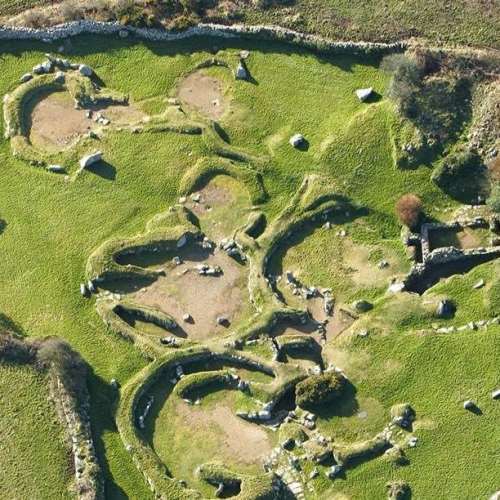Carn Euny Village TR20 8RB
Entry: Free for everyone
Open: seasonal - check website
Dogs: on leads
About:
Carn Euny is one of the best preserved ancient villages in south-west England. The village was inhabited from the Iron Age until about the end of the Roman occupation of Britain (about 400 BC – AD 400) and has an excellent example of an underground stone-walled passage, known as a ‘fogou’, a type of monument only found in the far west of Cornwall.
The earliest houses on the site were Iron Age ‘round houses’, probably built of timber and turf sometime between 500 and 400 BC. These were replaced with stone houses probably between about 50 BC and AD 100.
The last phase of settlement, between the 2nd and 4th centuries AD, saw several earlier buildings replaced with larger, stone ‘courtyard’ houses. The visible ruins above ground mark the remains of these later houses.
Old field boundaries nearby show that the inhabitants farmed some 40 acres of land around the village. They grew oats, barley and rye and kept animals such as sheep or goats and probably cattle. The villagers are likely to have been traders, perhaps dealing in local tin.
The village appears to have been abandoned in about AD 400, although we do not know why.
Parking:
Small car park located nearby (about 600m). Access to the car park is down narrow lanes unsuitable for large coaches.
Facilities:
None on location
Notes:
The track to the village is over farmland where cattle regularly graze and can be extremely muddy in wet weather. At least two stiles have to be crossed on this route.
There is a partially hidden, sheer drop into the passageway into the fogou. The site is very remote and exposed, with no shelter in extreme weather conditions.
Contact:
Website: www.english-heritage.org.uk
Tel: 0370 3331181

